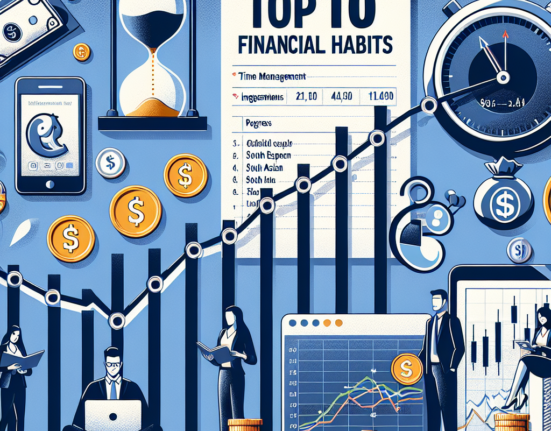Inflation Surge: What It Means for Consumers and Investors
Inflation, the gradual increase in the prices of goods and services, is an economic phenomenon that impacts everyone—consumers and investors alike. Recently, there’s been a significant surge in inflation rates, sparking widespread concerns and debates. Understanding its implications is crucial for navigating this challenging environment.
What is Inflation?
Inflation is primarily driven by an imbalance between supply and demand. When demand outstrips supply, prices tend to rise. Factors contributing to the current inflation surge include supply chain disruptions, labor shortages, increased consumer spending, and expansive monetary policies. These elements have converged, creating a perfect storm of rising prices.
Impact on Consumers
For consumers, inflation erodes purchasing power. When prices rise faster than income, people’s ability to buy goods and services diminishes. Here are some specific ways inflation affects consumers:
Cost of Living: Everyday expenses such as groceries, gasoline, and housing costs increase. Essentials become more expensive, shrinking disposable income and forcing households to tighten their budgets.
Savings and Debt: Inflation diminishes the value of money saved in banks, as the interest earned likely doesn’t keep pace with inflation. Conversely, those with fixed-rate debt might find it easier to repay loans, as the real value of their debt decreases.
Wages: While wages might eventually rise in response to inflation, they often lag behind. This delayed effect means that in the short term, purchasing power decreases.
- Social Equity: Low-income individuals and families are disproportionately affected. They spend a larger portion of their income on necessities, which have experienced some of the steepest price increases.
Impact on Investors
For investors, inflation presents both challenges and opportunities. Here’s how it plays out in the financial markets:
Stock Market: In the short term, inflation can create volatility in the stock market. Companies facing higher production costs may either pass these costs to consumers (if demand is inelastic) or see their profit margins squeezed. However, some sectors, like commodities and energy, might benefit from rising prices.
Bonds: Inflation is typically bad news for bond investors. Fixed interest payments on bonds lose value in real terms when inflation rises. This erodes investment returns and can lead to selling pressures, pushing bond prices down and yields up.
Real Assets: Investments in real assets like real estate and commodities often perform well during inflationary periods. Real estate properties tend to appreciate, and rents increase with inflation. Commodities like gold are considered a hedge against inflation, as their prices generally rise with inflation.
- Inflation-Protected Securities: Instruments like Treasury Inflation-Protected Securities (TIPS) are designed to provide protection against inflation. Their principal value adjusts based on changes in the Consumer Price Index (CPI), safeguarding investor purchasing power.
Strategies for Consumers and Investors
To navigate an inflationary environment, consumers and investors may consider the following strategies:
Consumers:
- Budget Adjustments: Revisit and adjust household budgets to prioritize essentials and reduce discretionary spending.
- Debt Management: Pay off high-interest debts, as lenders may increase interest rates in response to inflation.
- Savings Reallocation: Consider reallocating some savings to higher-yielding accounts or investment vehicles that offer better protection against inflation.
Investors:
- Diversification: Diversify portfolios to include assets that traditionally perform well during inflationary periods, such as real estate, commodities, and stocks of companies with strong pricing power.
- TIPS: Incorporate inflation-protected securities to safeguard fixed income investments.
- Quality Stocks: Focus on high-quality companies with strong balance sheets and the ability to pass on cost increases to consumers.
Conclusion
The current surge in inflation presents significant challenges for both consumers and investors. By understanding the underlying causes and proactively adjusting financial strategies, individuals can mitigate some of the adverse effects. While inflation erodes purchasing power and creates market volatility, it also opens up opportunities for those who adapt quickly and strategically. As always, staying informed and flexible is key to navigating economic uncertainties.
















Leave feedback about this
You must be logged in to post a comment.